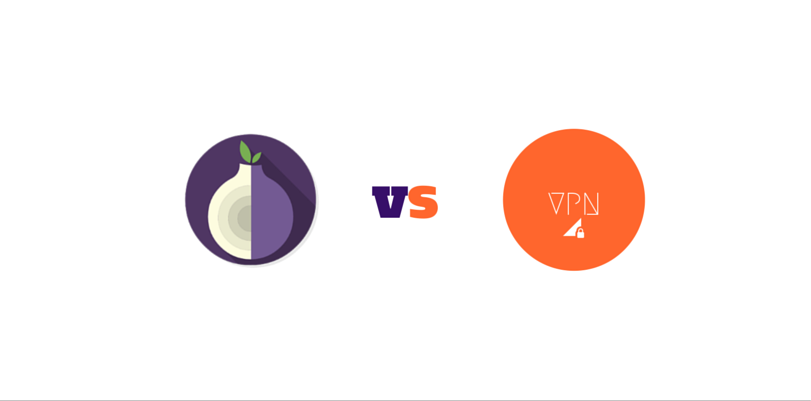If you’ve been wondering about the effectiveness of the Tor network, I can’t blame you.
With recent articles from ArsTechnica bashing VPNs and promoting Tor mashed up against constant news updates about various Tor breaches and compromised exit nodes–it seems like there’s a bunch of misinformation as well as general uncertainty about the Tor network.
Is Tor dangerous? Is it secure? Is it even worth using anymore? These are all questions that need answering.
In this article, we will clear up any misconceptions and lay down a final verdict if Tor is safe or not.
What is Tor?
Tor stands for The Onion Router. At first, it was a network created by the US to secure data and encrypt it. Eventually, it became a network, and thus, a software ran by volunteers to increase internet privacy.
When you launch the Tor Browser and access the Tor network, your signal is routed through a network of nodes. Each node knows the IP address around it, but it’s hard to know the path linking back to a user’s computer directly.
Is Tor Safe? Short answer–not by itself.
- Compromised exit nodes
The way tor works is that it connects users in the Tor network by nodes. There are entry nodes, and exit nodes where traffic revolves. However, if an exit node is compromised then someone snooping can see the source of the tor node and the traffic destination. This becomes a huge issue when an agency like the US government installs nodes themselves.
- FBI paid off University
Now a lot of people use Tor in the belief that it is safe from the FBI. A lot of people bash US-based VPNs since it is within the FBI’s jurisdiction, but Tor itself has been the victim of some HUGE attacks.
In late 2015, the Tor Project concluded that the FBI paid researchers 1 million dollars to attack the Tor network to gather data from Tor relays so they could be analyzed and used to identify users’ IP addresses. It is unlikely that the FBI obtained a valid warrant–but it was done as a method to seek out anyone involved in illegal activity.
There are also other instances where the FBI bypassed the Tor network taking over child porn websites collecting thousands of IP addresses from users.
In each of these cases, the FBI cracked the Tor network quite quickly, which exposed thousands of users. Now if you’re a criminal, you deserve to be caught, and you aren’t EVER safe since you will be caught eventually if security agencies want you. However, if you aren’t a criminal, and want a to put your trust in the strength of Tor alone–you might be making the wrong decision.
- Zero data encryption
Tor can help you become anonymous, but there are multiple weak points. We already mentioned exit nodes, but trackers can also attach tags to packets to trace how they are routed. Also, while Tor does help anonymize your traffic, it doesn’t encrypt it. This means that while you’re using the browser, it can be hard to track information back to you–but that information is still out there.
When you’re torrenting or using the internet at a coffee shop, you’re going to need a VPN to encrypt your web traffic and keep you secure. Tor can’t help you in these situations, particularly as it also slows down your browsing considerably.
Lastly, Tor is very vulnerable to man in the middle attacks since if someone can hack your computer and get access to your Tor browser, all of the information that is anonymized is worthless.
Using Tor vs. Using a VPN
So now that you understand some of Tor’s vulnerabilities and weaknesses, you might be wondering if it’s worth using at all, or what are the good things about using it. Also, what can you get from using both a VPN and Tor or just one and not the other?
Advantages of Tor
- Free
- Network is distributed and large scale, hard to shut down altogether (although wide scale attacks have been successful)
Disadvantages of Tor
- Very slow since your data has to be bounced around exit nodes which can exist anywhere in the world
- Using BitTorrent with Tor slows down the entire network, and your ISP can still see information through deep packet inspection
- Not suitable for use in public Wi-fi to keep hackers / snoopers out
A VPN is similar to Tor in some ways, but the way it works and the benefits it provides are very different. When you connect to a VPN, you are connecting to a virtual private network. You log into the software, and then your internet is sent through a virtual tunnel and encrypted. In a sense, it’s like your computer is connected to another computer which makes your IP appear different. Since a VPN isn’t like Tor in that it doesn’t bounce around all over the world, and it’s connected to one server, you can expect some advantages.
Advantages of VPN
- VPNs are much faster than Tor, and you will see minimal speed reduction if you pick a good VPN. Check out these fastest VPNs.
- Since you can connect to any server you want, it’s very easy to trick websites/services/apps in thinking you are in a different geo-location which can get you discounts on plane tickets, let you unblock Netflix and more
- Many VPNs are almost built for P2P networks, and a lot VPN providers work very very well with torrenting. Check out these VPNs for torrenting.
Disadvantages of VPN
- Most free VPNs are incredibly slow, limited with how much data you can use, or too good to be true and end up being botnets
- As with all security tools, there is some degree of trust that you have to place in your VPN provider. Check out our top VPNs to make sure you are picking the right one.
Using Tor and VPN Together
You might be thinking–why not just use both? Wouldn’t that be the mega solution? Well, maybe.
There are two ways to use Tor + VPN. One way is to connect to the Tor network through your VPN first; then the second way is to connect to your VPN through Tor.
If you connect to your VPN, then connect through the Tor network through the Tor browser, you will gain some additional security. This means that your internet service provider can’t see that you are using Tor since your activity is encrypted from deep packet inspection techniques that ISPs use. While normally without a VPN, your Tor entry node reveals your actual IP, with a VPN, your entry node will be hidden.
In addition to using VPN with the Tor browser, you can also use some special VPNs like AirVPN to configure your VPN to use a VPN through the Tor network. If you connect to the VPN through the Tor network, your VPN provider can’t see your real IP address–only the Tor exit node. Using VPN through Tor can be useful if you want to use a VPN like AirVPN and don’t want them knowing ANYTHING about your connection.
In some ways, using VPN + TOR is quite confusing, comparing the two, and deciding which order to use one or the other. Should you use Tor through VPN, or VPN through Tor?
Here, I’ll simplify it for you. Overall, if you use a VPN with Tor, you can gain some benefits.
Overall, if you use a VPN with Tor, you can gain some advantages. By using a VPN with tor you can give yourself additional security inside the network since even if an exit node is compromised, you still have encryption protecting your data and your IP address from leaking.
Which VPNs should I use?
Don’t worry; that’s the easy part! Well–now that you are here anyway! We’ve already compiled the best 5 VPNs with a helpful comparison layout table. Just check out this article that will help you decide between the best 5 VPNs to use with Tor.





